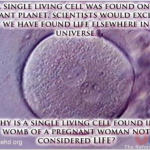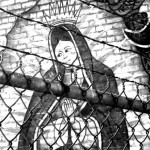Trigger Warning for Discussion of Racism/Racial Slurs

A few weeks ago, during a slow day at work, I listened to two of my coworkers strike up a conversation about “the n word.” One of my coworkers was opposed to anyone using the word. He told my other coworker that he knows other black people disagree, but he would rather not hear anyone–including black people–say it.
My other coworker responded that this word was “just a word,” and “I just don’t let it have power over me.”
The problem with this conversation was that my first coworker was black.
My second coworker (by his own admission) was 100% white.
It was easy for my second coworker, as a white person, to say that he doesn’t let that word have power over him. He’s never had to face the system of oppression associated with that word. He doesn’t share in the collective consciousness associated with it. He’s never had to face the fact that racism is not just about a word, but about the oppressive actions and institutions that hateful slurs both remind of and reinforce.
It’s easy for my white coworker to not let the word have power over him because it doesn’t have power over him. It wasn’t meant to. It was meant to give him power.
I think of this exchange at work every time I see another famous white person release a statement calling us to forgive Paula Deen. From Anne Rice to Jimmy Carter to white Christians at Christianity Today, many are calling to leave poor Paula Deen alone. She said sorry! That should be enough, right?
I won’t be joining them in forgiving Paula Deen.
It’s not because I’m bitter toward her. It’s because she hasn’t done anything to me to make me bitter toward her. I hurt for the people to whom Deen’s words were directed, but because I am white, her words do not directly effect me.
Therefore, it is not my place to forgive.
A statement coming from me saying, “I accept Deen’s apology” would sound as shallow and ridiculous as my white coworker saying that he just doesn’t let the n word bother him.
It’s easy for white people like me to not let the word bother them. We can pretend it’s “just a word.” We can easily pretend that Paula Deen’s usage of it was just a slip of the tongue. We can ignore the systems of oppression this word is wrapped up it, and we can go on being blissfully ignorant of the way Paula Deen blatantly participated in those systems of oppression beyond the use of that word–forcing black coworkers to use different entrances and restrooms, romanticizing the antebellum south, etc.
I’m not saying that my fellow white people and I have to go around being angry at Paula Deen forever. I’m saying that deciding we’re not angry with her any longer doesn’t mean anything coming from us.
Forgiving Paula Deen is not our place.
It is the place of the black coworkers that she mistreated to choose whether or not to forgive her on an individual level. It is the place of all black people who are hurt by systemic racism to choose whether or not to forgive her for her perpetuation of oppression toward them as a group. Not everyone from these groups is going to agree with how to go about responding to Deen, because they are not a monolith. None of them speak for their entire group (so, white folks, please don’t respond with “But my black friend forgives Paula Deen!”). But they are allowed to have space to have those conversations and make those decisions.
White folks, our place is not to demand forgiveness from the people who were hurt by Paula Deen. In fact, when we tell black people how to respond to oppression, when we try to dictate the opinions and emotions of black people, we are being oppressive.
White folks, we do have a place in this conversation. Our place is to look at our own lives and make sure we are not hurting others the way Deen did, even on a smaller scale. Our place is to constantly check our own privilege to make sure we’re not hurting others as we go along with even things that are considered “normal” for everyone to do/say now-a-days. Our job is to challenge racism like Deen’s when we see it in other white people or in our institutions.
Whether we’re talking about white people forgiving Paula Deen, or straight/cis people forgiving Exodus International, or people who have never been effected by spiritual abuse forgiving spiritually abusive leaders, we all need to think about our own social context in the matter.
We don’t always have the right to forgive. Those who were hurt are the ones who get to make that choice. This shouldn’t be that difficult to understand.











